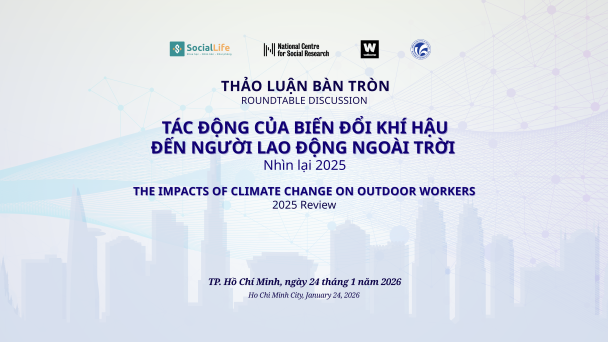The 4th Roundtable Discussion on the Impacts of Climate Change on Urban Outdoor Workers


There is a growing global consensus on the need for financial literacy interventions in schools to provide children and young people with the skills to make good financial decisions. In the United Kingdom, there have been campaigns for financial education to be introduced as a compulsory part of the primary curriculum. Research commissioned by the banking app GoHenry found that prioritising financial education would inject an extra £6.98 billion into the British economy each year. In the Middle East and North Africa, average financial literacy falls slightly below the world average at 30.07% and in a 2018 survey by Visa and the Al Etihad Credit Bureau, 43% of young adults (aged 16 to 24) in the UAE admitted that they are not ready to manage their own finances. In Kuwait, a survey from 2018 shows that while the level of financial literacy there is higher than in Bahrain, Saudi Arabia and the UAE, the general level of understanding of basic financial concepts remains low. Notably, the Central Bank of Kuwait has set out guidelines to enhance financial inclusion and literacy in the country.
Through a collaboration between NatCen International, the global arm of the National Centre for Social Research, Creative Confidence Consultancy and Training Institute (CCCTI), and the National Bank of Kuwait (NBK), this event will feature the launch of the findings of an ambitious one-year evaluation of the Bankee Programme, a financial literacy intervention targeting primary school children in Kuwait. The findings reflect on the process of adapting an international financial literacy intervention to the Kuwaiti context and the extent to which it has improved the financial literacy, financial behaviour, and overall wellbeing of primary school pupils in both public and private schools in the country. The findings provide reflections on good practice, opportunities and challenges for similar interventions in Kuwait.
Additionally, the event addressed three key questions on transformational education initiatives, drawing on insights from the United Kingdom and Kuwait:
12:30 Registration and Welcome
13:00 Opening Remarks
13:30 Evaluation of the Bankee Intervention: Key Findings and Reflections
15:00 Comfort Break
15:15 Panel Discussion: Integrating Financial Literacy in Schools: Lessons from the UK and Kuwait
16.15 Comfort Break
16:30 Public-Private Partnerships in Education: Opportunities and Challenges
17:30 Closing Remarks
Diane joined NatCen International in July 2023 as a Research Director. Her research will centre on Global Health with a focus on Equity and Inequality. Before joining NatCen, Diane was a Lecturer in Psychology at the University of Kent with an interest in Social and Political Psychology. During that time, she worked on developing a module on race and racism that spans across multiple humanities and social sciences subjects including: Psychology, Sociology, Economics, Politics, Anthropology and Conservation. She also assisted in devising and implementing a creative mentoring programme for Graduate Teaching Assistants using methods to enhance their wellbeing and role in the School of Psychology.
She is a mixed-methods researcher with experience in carrying out both quantitative and qualitative research in Social, Political and Organisational Psychology. She was also the Methods and Statistics module convenor for the MSc program in Organisational Psychology.
She has previously worked with Syrian Refugees in Lebanon and investigated the factors underlying the #MeToo movement in Lebanon.
Georges is a Research Director at NatCen’s Centre for Evaluation and has a background in economics. His main areas of interest are education, health, and crime, both in the UK and abroad, and he has long experience using experimental and quasi-experimental evaluation methods.
Before joining NatCen, Georges worked at the World Bank on a large-scale RCT to evaluate a youth employment programme in Kenya (2020), and he was also a Senior Research and Operations Manager at Precision Development (PxD) in Nairobi (2021-2022). At PxD, Georges lead several research projects on agriculture in East Africa and South Asia, including impact evaluations.
Sherine is the Director of NatCen International where she leads a team of senior experts and researchers dedicated to shaping global social policy and practice. She is widely acknowledged as an expert in humanitarian and development policy, conflict, security and evidence uptake with a focus on the UK, Africa and the Middle East. Sherine has two decades of experience in leading and delivering on complex research projects and consortia as well as providing policy advice at a senior level to governments, donors and civil society organizations on their engagement in fragile and conflict-affected contexts.
Prior to establishing NatCen International, Sherine was a Senior Research Fellow at ODI where she launched and co-led a cross-institutional initiative on peace and sustainability in the Mediterranean region. Earlier in her career, she set up a research unit on regional philanthropy and civic engagement at the American University in Cairo. Sherine has held fellowships at Keble College at the University of Oxford, the Department of Asia, Africa and the Mediterranean at the University of Naples ‘L’Orientale’ and the King Faisal Centre for Research and Islamic Studies in Saudi Arabia. She has also been a guest lecturer at the Royal United Services Institute (RUSI) and Cranfield University in England as well as the Doha Institute for Graduate Studies in Qatar. Her work can be found in the International Review of the Red Cross, the Oxford Handbook of the Sociology of the Middle East, Development in Practice as well as book chapters in edited volumes with Palgrave Macmillan and James Currey. Sherine sits on the Board of Trustees of Protection Approaches, a UK charity dedicated to combatting identity-based violence in the UK and globally.
Sherine holds a DPhil from the Department of International Development and St. Cross College at the University of Oxford.



Receive a regular update, sent directly to your inbox, with a summary of our current events, research, blogs and comment.
Subscribe